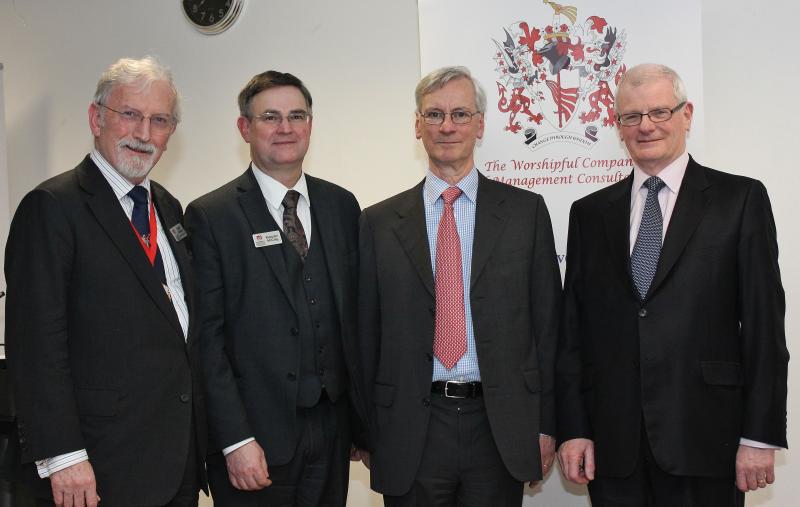Re-thinking Reputational Risk...
" It takes 20 years to build a reputation and five minutes to ruin it. If you think about that, you'll do things differently..."
Most of us have heard the Warren Buffet quote: " It takes 20 years to build a reputation and five minutes to ruin it. If you think about that, you'll do things differently."
We are also well aware of the continuing trail of high profile reputational disasters, thanks to media coverage of recent events such as Carillion, Oxfam, and many others.

Calvert Markham
So when the Centre for Management Consulting Excellence (CMCE) launched its inaugural Technical Symposium in February 2018, it should have come as no surprise that reputational risk was selected as a hot topic.
A specialist in his field

Following on from the successful Global Symposium last year, at which Tom Peters spoke, the CMCE was keen to serve up an expert to do justice to the subject of reputational risk. To our delight, we were able to secure the services of Anthony Fitzsimmons, Chairman of Reputability, to be the speaker for the first Technical Symposium.
Anthony was the co-author of the book "Rethinking Reputational Risk", published in early 2017. Prior to that, he was the co-author of the publication "Roads to Ruin", a study undertaken in conjunction with Cass Business School into the causes of reputational damage. Originally a lawyer by training, his consultancy firm, Reputability LLP, has helped a number of organisations to identify and manage their reputational risks.
A gathering of interested minds
Although it was a cold winter's evening, we had a good turnout, with about fifty members of the Worshipful Company and their invited guests in attendance. Of particular note, we had Masters (or their representatives) of more than a dozen other livery companies in attendance, including Needlemakers,  Joiners, Architects, Clockmakers, Tobacco Pipemakers, Poulters, Educators, Plumbers, Furnituremakers and Firefighters.
Joiners, Architects, Clockmakers, Tobacco Pipemakers, Poulters, Educators, Plumbers, Furnituremakers and Firefighters.
For our venue, we partnered with Coventry University, one of the top twelve universities in the UK, and one which is very active in public research. They kindly hosted the evening at their London campus, and about fifteen of their MBA students attended the event.
Learning from catastrophes
Anthony's talk was based on the research conducted for his recent book, in which he analysed a selection of recent reputational disasters. It didn't take long for him to lay down a challenge to traditional management thinking and action. In his opening remarks, he said that the common root cause for reputational failure lay with top management, not with the less senior person that is often singled out to be a scapegoat.
He questioned the robustness of governance in some firms, and their ability to deal with soft issues such as tone at the top. He also lay down challenges such as "the failure of modern risk management", and whether the three lines of defence model is appropriate. In his talk, Anthony drew attention to valuable techniques and insights from his research, such as recognising the long incubation period that can exist before a reputational event occurs.
The lecture was followed by a buoyant question and answer session, chaired by Calvert Markham, Director of the Centre for Management Consulting Excellence . In response to a collection of questions from Sir Andrew Likierman, the Dean of London Business School, Anthony made a strong reference to the aviation industry. He exemplified their culture of being open and analysing aviation incidents as they occur, and the way in which learning is reapplied for the future as a way of heading off reputational fallout. (There must be some truth in this - there are more people killed by donkeys every year than 'plane crashes!)
Thoughts to take away
After a vote of thanks from the Master, we continued with informal questions and answers, and the opportunity to network. The level of interest remained high throughout the rest of the evening, and it would appear that we all got something out of Anthony's talk. Reputation is a topic that concerns all of us, whether it is our personal reputation, that of our client organisations, or the livery movement itself. We can only hope that we never end up as one of Anthony's reputational disaster case studies.

Assistant Malcolm McCaig
